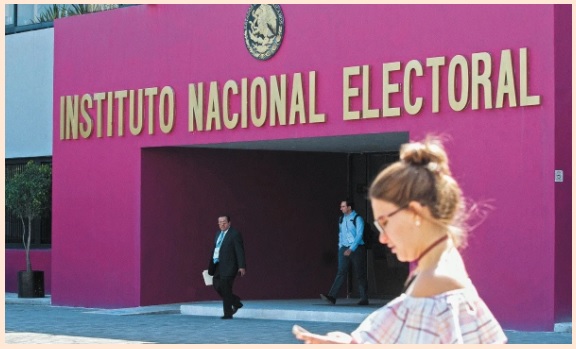Mexican President Andrés Manuel López Obrador has stood by his decision to approve a reform of the nation’s electoral institute. Critics, however, said the changes will put the credibility of the nation’s elections at risk. Lila Abed, deputy director of the Mexico Institute at the Wilson Center, joined CBS News to discuss the situation.
Lawmakers voted 72-50 in favor of the controversial overhaul of the body overseeing Mexico’s elections. Opponents immediately said they will challenge the changes in the supreme court. Protests are planned in multiple cities.
The reform still needs to be enacted by President Andrés Manuel López Obrador, but that is seen as a formality since he backs the initiative, which would reduce the size of the institute and limit its supervisory and sanctioning powers.
Some opposition lawmakers held up posters reading: “Morena wants to steal the elections,” referring to López Obrador’s ruling Morena party. Mexico has presidential elections scheduled for next year.
The legislative initiative, known as “Plan B”, was proposed by the president in December after he did not obtain enough votes in Congress for a constitutional reform that carried deeper electoral changes.
The president has repeatedly denied that the reform package could put the elections in Mexico at risk, saying the initiative seeks to cut the National Electoral Institute’s large budget and end its privileges.
López Obrador and his supporters have been critical of the electoral institute since 2006 when he came within 0.56% of the vote of winning the presidency and denounced his loss as fraudulent.
He and his supporters launched a mass protest movement.
Despite the institute confirming his landslide victory in 2018, López Obrador has repeatedly complained of how costly it is to run elections in Mexico and sought to curtail the institute’s budget.
He frequently says that the independent body is in the hands of the elite.
Some Mexicans see similarities to the rhetoric used by former US President Donald Trump and ex-Brazilian President Jair Bolsonaro ahead of elections in those countries that aimed to erode confidence in the process.
Many in Mexico see the electoral institute as a key pillar of the country’s modern democracy. After 71 years of uninterrupted single-party rule, the opposition finally broke through in 2000.



